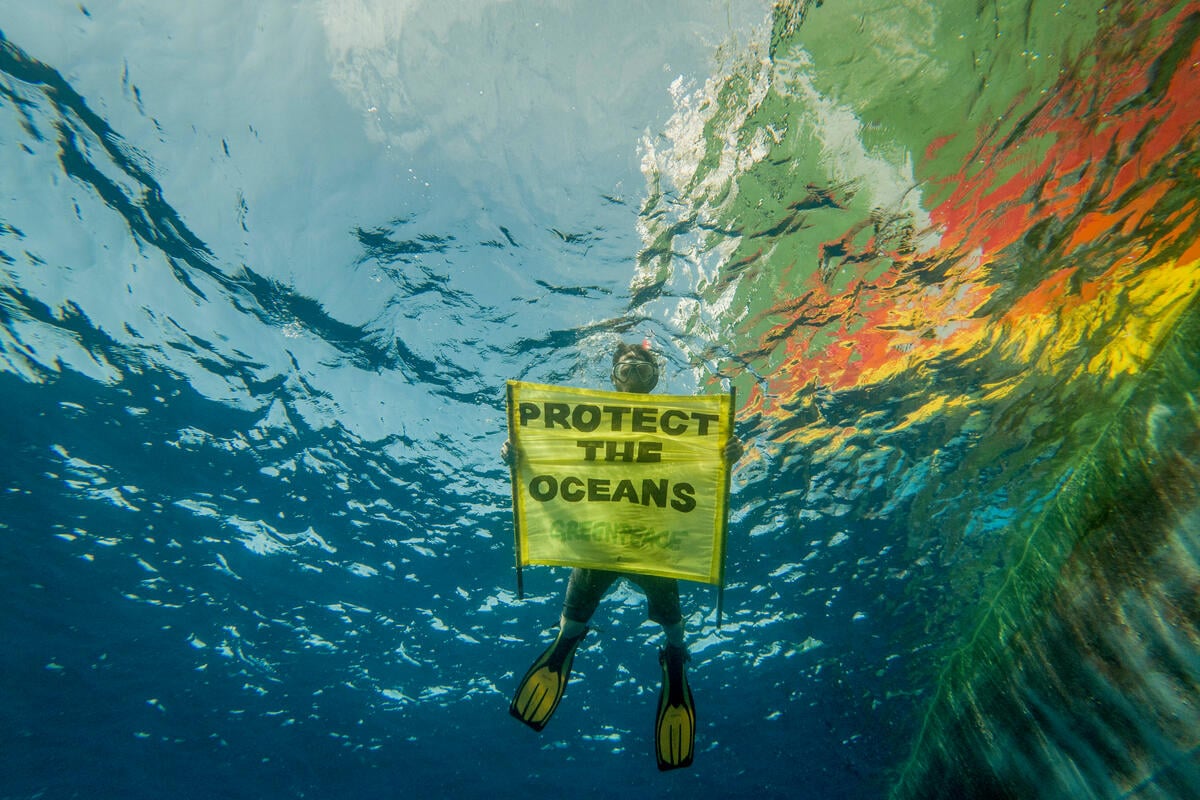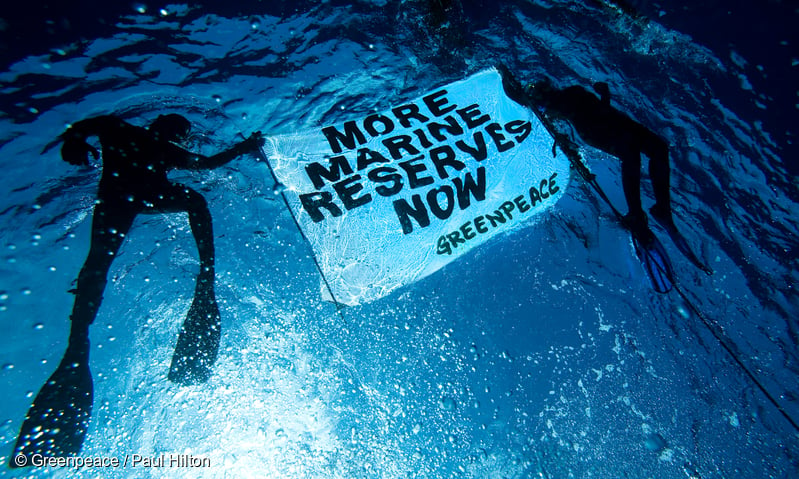

Washington, DC (October 21, 2024)-A new Greenpeace International report released on October 17, “In Hotter Water: How the Global Ocean Treaty Can Boost Climate Action,” presents compelling evidence of the disastrous impacts of the climate crisis on the ocean and coastal communities.
The report summarizes scientific findings over the last five years which raise the alarm about ocean warming, coral bleaching, shifting marine species distributions, sea ice loss, sea level rise, and extreme weather events. Key facts include:
- Warming ocean waters mean the ocean is 1–2% less oxygenated than in the 1970s.
- Sea ice is retreating in the polar regions. The Arctic sea ice minimum extent in 2024 was the seventh-lowest on satellite record, and the 18 lowest annual minima have all occurred in the last 18 years.
- A global mass bleaching event began in 2023—the second in 10 years—and by July 2024, 73% of the world’s corals had been exposed to enough heat to begin bleaching.
- So-called “once in a century” extreme sea level events are predicted to be 20–30 times more frequent, exposing one billion people to their effects.
- Sea levels are 21cm higher than they were in 1900, and projected future ice loss from polar ice sheets and from glaciers in mountainous regions means that larger increases are expected by 2100 even under the lowest emissions scenario.
Arlo Hemphill, Greenpeace USA’s Oceans are Life campaign lead, said: “The ocean is fundamental to life on Earth, but its ability to protect us and support marine ecosystems is diminishing at an alarming rate due to the accelerating climate crisis. From coast to coast ocean heatwaves, coral bleaching, excessive seaweed growth, declining fisheries, and stronger hurricanes threaten not only marine biodiversity but also the economic stability and safety of communities that rely on a healthy ocean. Yet, despite all the stress the oceans already face, deep sea miners are pushing to exploit one of the planet’s most vital and least understood ecosystems for metals that amongst other uses will build weapons of war and destruction. While coastal communities bear the brunt of these challenges, the effects of a deteriorating ocean reach every corner of our nation.”
As the ocean and climate crises worsen, governments have been dragging their feet on measures to effectively protect the oceans. To this day, less than 1% of the high seas—the largest habitat on Earth, comprising 64% of the world’s ocean—is fully or highly protected from human activities.
Hemphill added: “The Biden-Harris Administration showed leadership by being among the first countries to sign the Treaty in 2023. We also commend their recent designation of the Chumash National Marine Heritage Sanctuary. But given the scale of the crisis we face, they must go further to fulfill their commitment to safeguard 30% of the world’s oceans by 2030 through rapid and effective implementation of the Treaty, including to fulfill their commitment to expand the Pacific Remote Islands Marine National Monument. They must also significantly reduce our carbon emissions by committing to a strong Global Plastic Treaty that reduces plastic production by 75% by 2030.”
Scientists warn that safeguarding 30% of the world’s oceans by 2030 is essential to mitigating the worst impacts of climate change and allowing our oceans to recover and thrive. The Global Ocean Treaty is our most effective tool for achieving this goal through a network of ocean sanctuaries. To complement these efforts, governments must also drastically and urgently reduce carbon emissions in line with the Paris Agreement. At least 60 countries need to ratify the Global Ocean Treaty by the UN Ocean Conference of the Parties (COP) in June 2025 for it to enter into force 120 days later. Although the United States was among the first to sign the treaty in September 2023, it has yet to ratify it.
ENDS
Contacts:
Magali Rubino, Global Media Lead, Greenpeace Protect the Oceans campaign, Greenpeace France: [email protected] +33 7 78 41 78 78 (GMT+1)
Greenpeace International Press Desk: [email protected], +31 (0) 20 718 2470 (available 24 hours)


